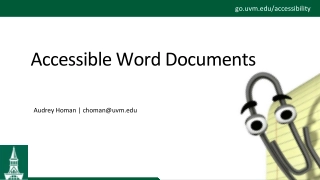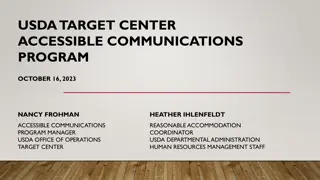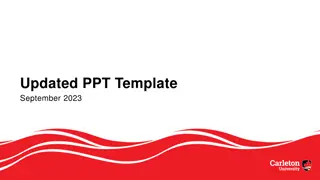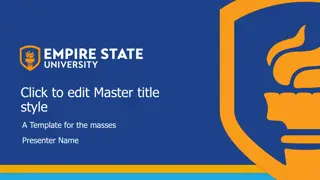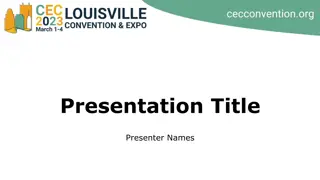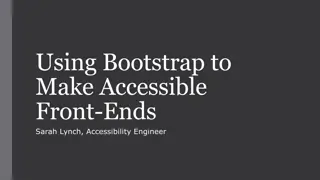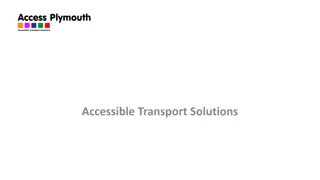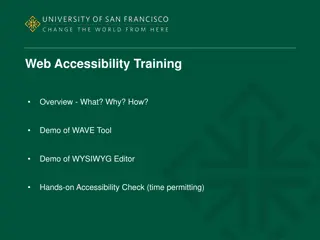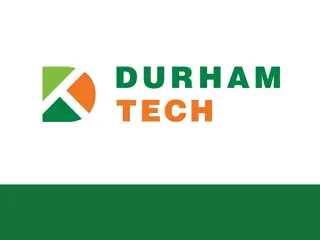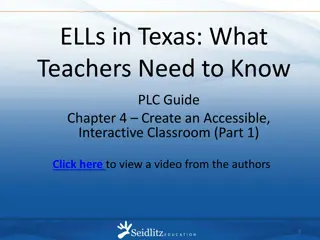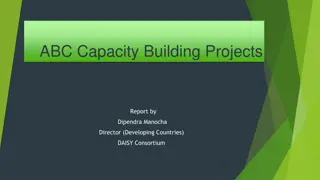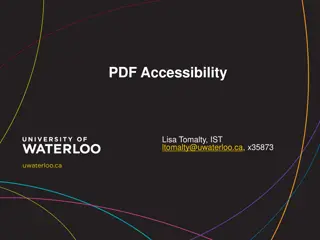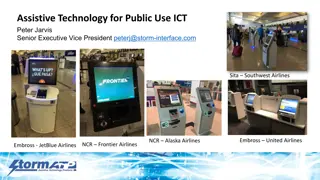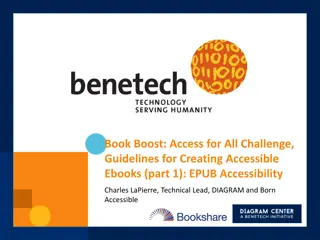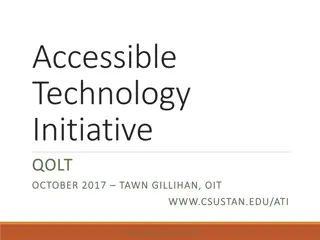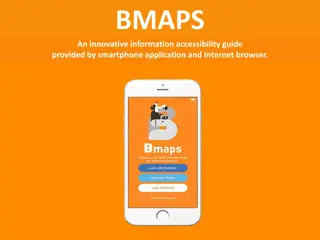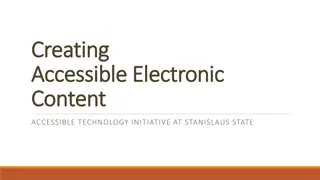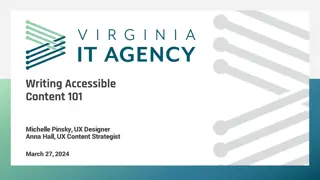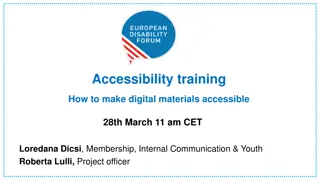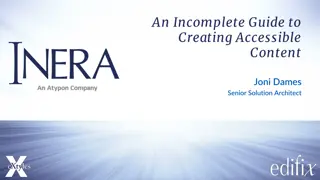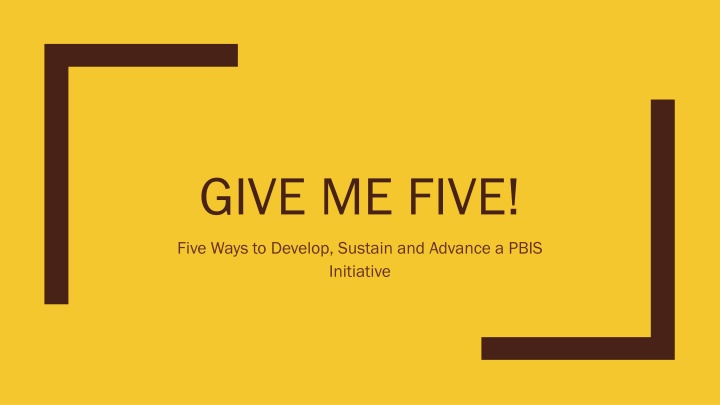
Five Ways to Develop, Sustain, and Advance a PBIS Initiative
Discover five effective strategies to develop, sustain, and advance a Positive Behavioral Interventions and Supports (PBIS) initiative successfully over time. These methods include building buy-in, maintaining continual feedback loops, ensuring committed time for PBIS, establishing strong teamwork, and defining clear roles and responsibilities for the PBIS leadership team.
Download Presentation

Please find below an Image/Link to download the presentation.
The content on the website is provided AS IS for your information and personal use only. It may not be sold, licensed, or shared on other websites without obtaining consent from the author. If you encounter any issues during the download, it is possible that the publisher has removed the file from their server.
You are allowed to download the files provided on this website for personal or commercial use, subject to the condition that they are used lawfully. All files are the property of their respective owners.
The content on the website is provided AS IS for your information and personal use only. It may not be sold, licensed, or shared on other websites without obtaining consent from the author.
E N D
Presentation Transcript
GIVE ME FIVE! Five Ways to Develop, Sustain and Advance a PBIS Initiative
A Look Back 2010-11 Initial look into PBIS 2011-12 Participated in Cohort 7 Year 1 2012-13 Year Two of Cohort 7-Change in Administration 2013-14 Developed Videos for All Settings on Matrix. School Wide Expectations embedded into Curriculum Map (beginning of year-mid year). Team Assemblies. 2014-15 Woodson Book Club-Learning Work with CICO. 2015-16 Implemented CICO-District Wide Teacher Wellness Workshops-Streamlined Behavioral Matrix (first time since 2011-12). Integrated SWIS into our RtI Team.
BUY IN I have not failed. I ve just found 10,000 ways that won t work. Thomas Edison
Continual Dip Stick- Not Just One and Done. Feedback Loop Feedback Loop: PBIS Team Members take 'data informed' questions out to staff for input/feedback and suggestions and then we ACT on this information. Firm Foundation: Firm Foundation: Our stability as a PBIS team gives us opportunities to explore enhancements to our systems. Continued Committed Time for PBIS. Continued Committed Time for PBIS. Staff Meetings continued focus even five years later. Established Team and Focus: Established Team and Focus: Teachers sign up for this committee. Embedded in our Site Plan Annually.
TEAM WORK You are the most talented, most interesting, and most extraordinary person in the universe. And you are capable of amazing things. Because you are the Special. And so am I. And so is everyone. Emmet The Lego Movie 2014
Roles and Responsibilites PBIS Leadership Team: Meets on a monthly basis Agenda for team meetings is developed in these meetings Review of SWIS and CICO data occurs monthly Administration is present at these meetings Equal voice at the table PBIS Coach and Social Worker serve on both RtI and PBIS teams. Decision making team for use of PBIS funds
Roles and Responsiblities Outcomes: PBIS on the agenda for EVERY staff meeting Paraprofessional trainings surround PBIS topics of interest Team members share information back to staff on a consistent basis using agenda on OneNote
CLIMATE AND CULTURE We're all working together; that's the secret. Sam Walton
Ways We Are Cultivating a Positive Place to Learn and Work.
Critter Tree: Classroom to School-Wide Celebration
TIERED SUPPORTS Sometimes you have to go through things...not around them.
Laying the Foundation Ensuring Tier One Behavioral Supports are implemented consistently across settings. Language Reinforces for students (Critter Cards) Expectations are taught for every setting consistently Expectations are present in every part of the building. For Universal Students-Staff Response is consistent Behavioral ticket process is outlined on back of ticket. **Tier One is for everybody...including our Tier Two and Three Students.***
Accountability: Tier One Lessons embedded into Curriculum Map PBIS OneNote: Lessons Social Stories Videos Schedule for Teaching Lessons in Environments SMART Board Lessons with hands on activities for practice and review
Accountability: What Gets Monitored-Gets Done. RtI Team: Reviews SWIS data (Major Referrals) Reviews Student Specific Concerns Looks at Attendance, Academic Data points Makes Recommendations for Tier Two Interventions Reviews Tier Two/Three Students Bi-Weekly and Makes Adjustments as Needed. Coach-Social Worker-Administrator on both teams.
Establish Time for Learning Work With Foundation in Place we had an opportunity to look ways to support our Tier One and Two Students Multiple conference calls, site visits and reviewed literature to determine a 'just right fit' for our school and students. Check In Check Out (CICO) was piloted in Spring of 2015 with Administrator, Social Worker, and Intervention Teacher. After review of data and discussions with MDE-full implementation of CICO occurred during 2015-16 school year. Position was created to support full implementation with fidelity.
PROCESS Hold the Vision .Trust the Process Author Unknown
We Dont REACT to Isolated Incidents- We RESPOND to Data. Take the Gut out of decision making. Review SWIS data Environmental observations Feedback from stakeholders Examples: Change in Parent Drop Off/Bus Dismissal Unannounced Fire Drills and Code Red Lunchroom Voice Volume and Flow into cafeteria.
Process is not Person dependent. PBIS Agenda s are available to all team members. Take Away information is written on shared document so we are consistent with message back to staff. Multiple support team members share out so information doesn t just come from one person. Para Trainings Staff Meeting Share Outs. Role of Coach, Admin, and Other Stakeholders.
ARE WE BETTER FIVE YEARS LATER? Alone we can do so little. Together we can do so much. Hellen Keller
What We Have Learned. Creating an environment where every staff member is heard. PBIS Team is dynamic. Membership changes so we can grow in understanding and apply new ideas. Take time to build a strong Tier One. Administrator buy-in. Do your research-seek out other schools and resources. Make sure whatever you do is a good fit for your school. Keep it positive. Take risks and recognize it is okay to fail.

